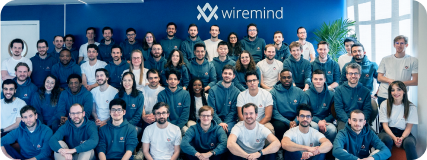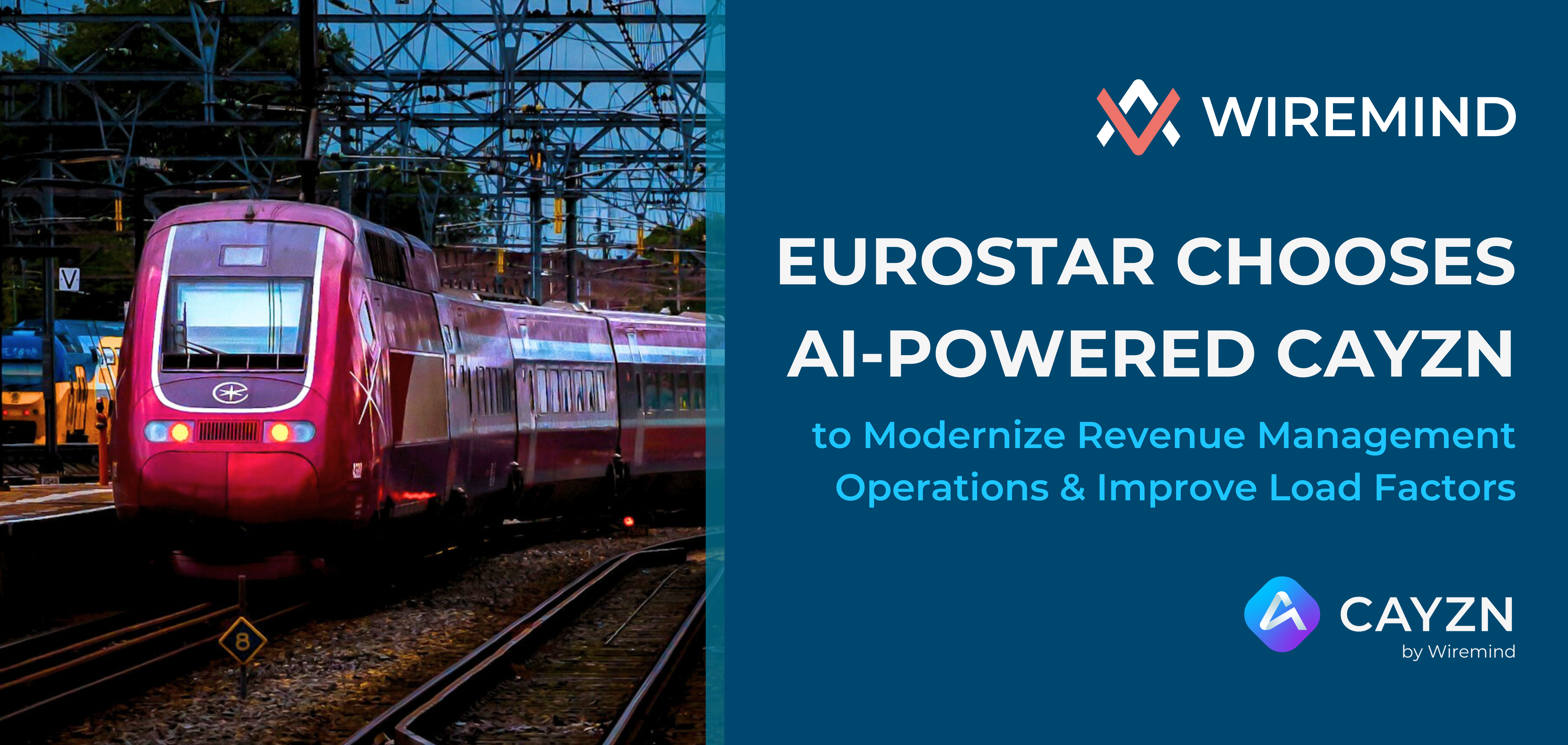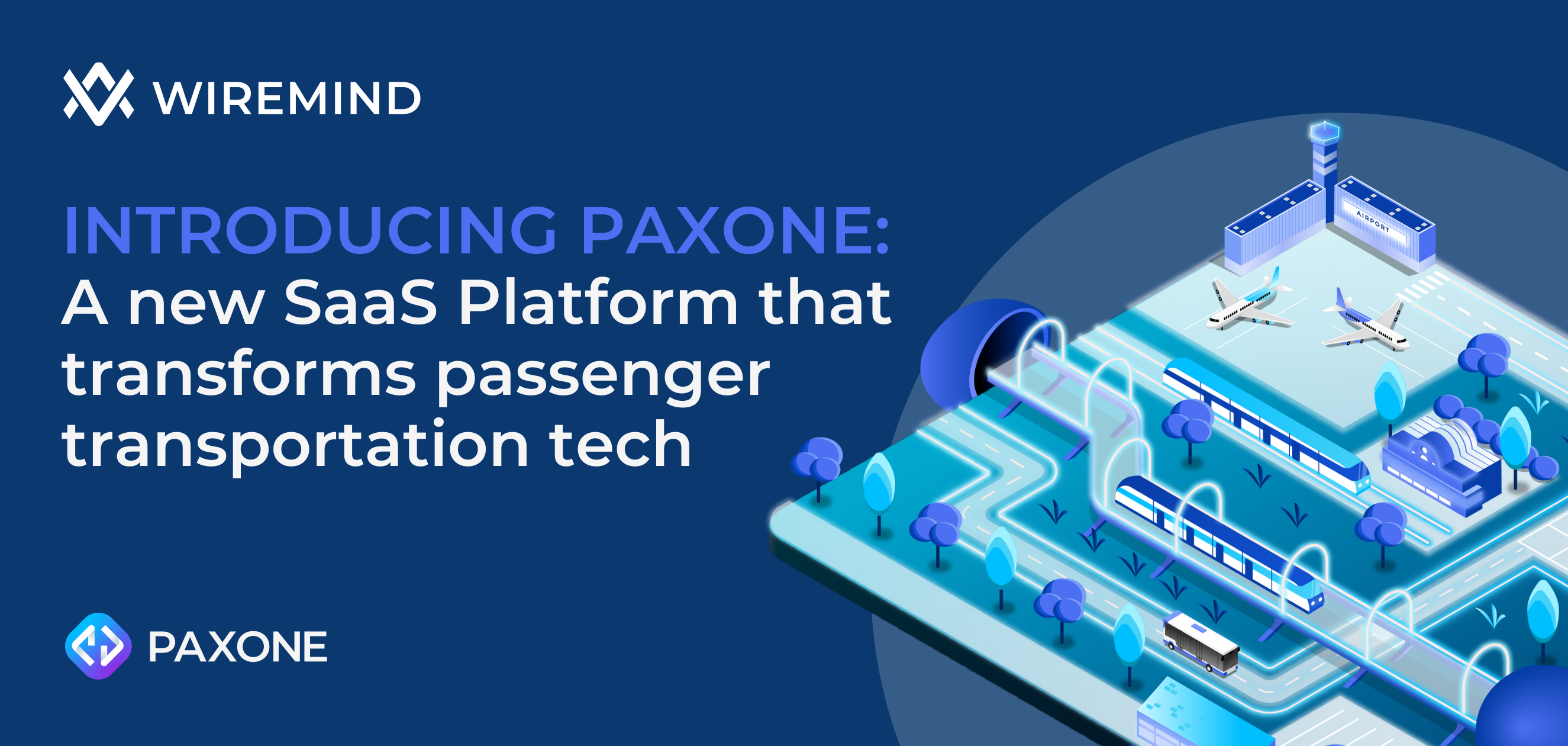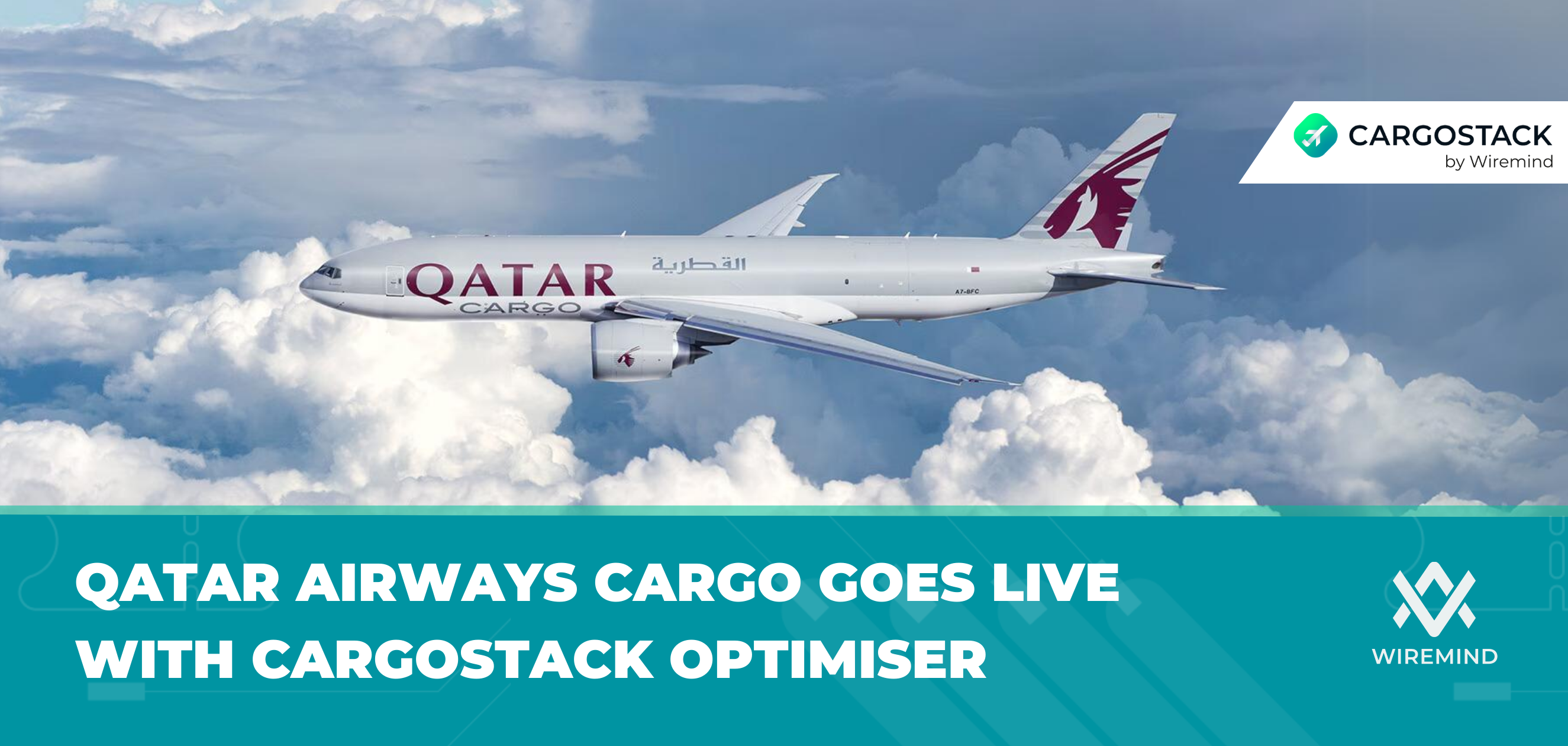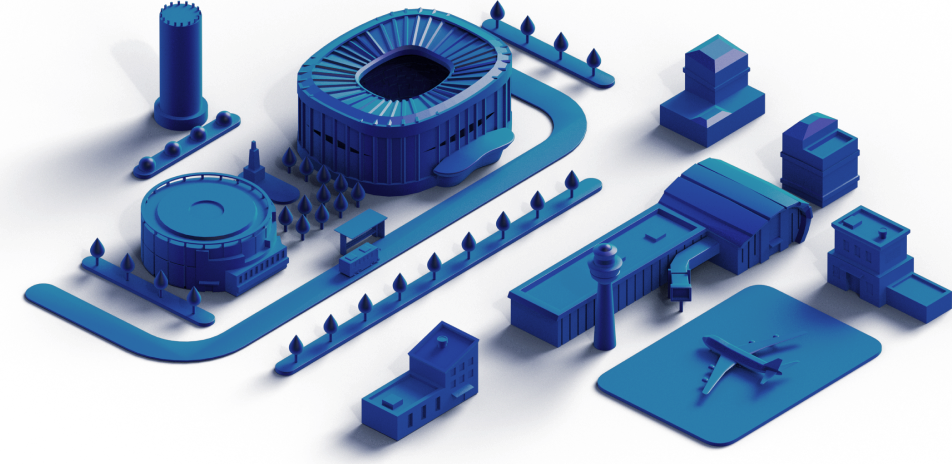Integrated Rail Systems: Cost, Efficiency, and the Future of Rail
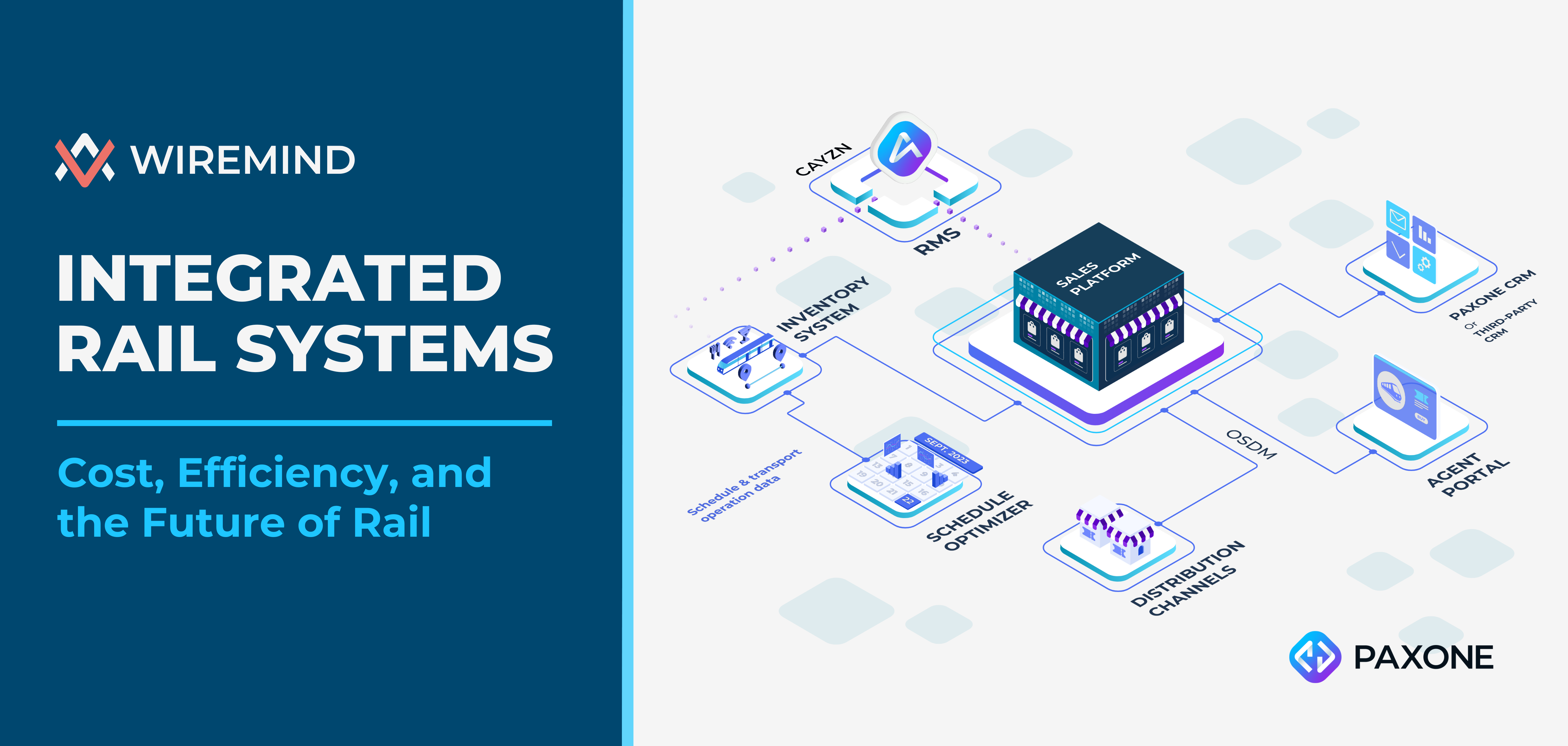
Imagine a passenger seamlessly booking a ticket, receiving offers tailored to their preferences, staying informed on every delay or cancellation, being able to rebook and consider other offer options, and enjoying a consistent experience from start to finish. This level of rail system efficiency and personalization is a vision that can become a reality with integrated rail systems powered by unified commercial IT landscapes.
Yet, for many rail operators today, this vision feels out of reach. Separate systems for ticketing, inventory, customer relationship management (CRM), and revenue management (RM) create fragmented processes and data silos, leading to inefficiencies and missed opportunities. Without a unified approach, operators miss out on opportunities to optimize costs, maximize revenue, and deliver the streamlined experiences passengers now expect.
Hence the railway industry is keen on a transformation driven by the need for operational efficiency, improved passenger experience, and revenue optimization. A critical enabler of this transformation is the commercial IT landscape, which encompasses systems for sales, inventory management, CRM, and RM. Read through the first article in our series on Divided vs. Integrated Rail Systems, where we explore the current landscape and highlight why an Integrated Commercial IT landscape is the future for modern rail operators.
Understanding the Current Landscape
Fragmentation in Divided Rail Systems: Railway operations are split between different entities managing infrastructure and train services. While this promotes competition, it often results in divided IT landscapes. Operators rely on separate systems for inventory, ticketing, CRM, and RM, leading to inefficiencies such as data silos, poor integration, and inconsistent passenger experiences.
Legacy Systems and Their Limitations: Even in unified, all-in-one rail systems — where a single entity oversees all the commercial elements, legacy IT systems pose a challenge. These outdated platforms often lack the flexibility to integrate modern tools or adapt to changing market demands. As a result, operators struggle to implement dynamic pricing models, efficiently manage inventory, or leverage passenger data for personalized marketing.
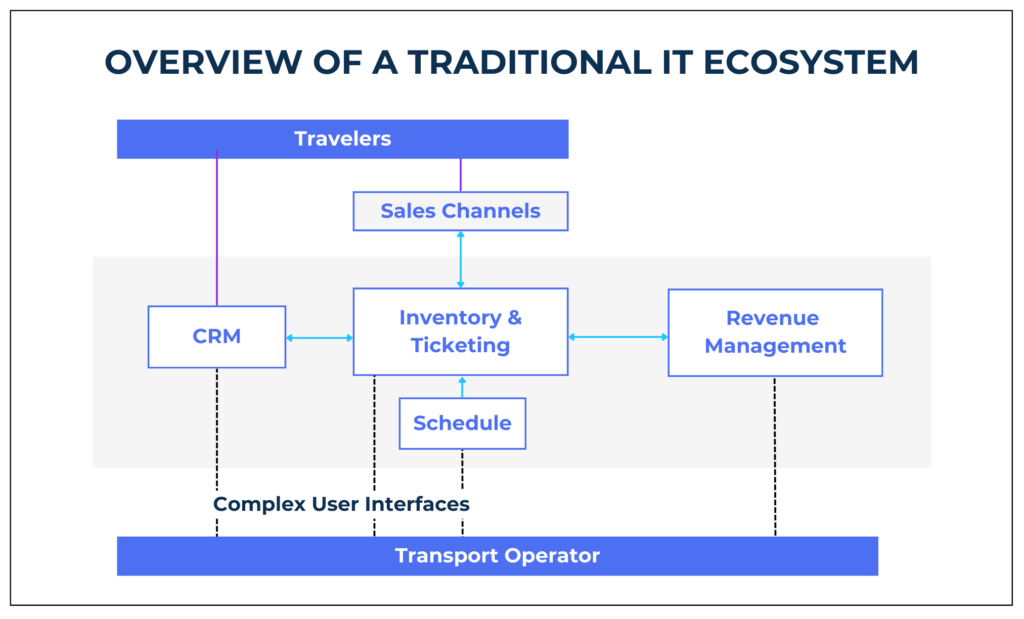
Key Challenges
- Data Silos and Lack of Integration: Commercial IT systems often operate independently, making it difficult to consolidate data across sales channels, inventory systems, and CRM tools. This hinders real-time decision-making and cohesive revenue strategies.
- Limited Revenue Optimization: Many operators rely on static pricing models that fail to respond to fluctuating demand. The absence of advanced tools for revenue management reduces profitability.
- Inconsistent Passenger Experiences: Fragmented IT systems lead to inconsistencies in ticketing, pricing, and service delivery. Passengers expect seamless travel experiences, which these reservation systems often fail to provide.
- Scalability Issues: Proprietary and siloed systems are difficult to scale, making it challenging to adapt to new demands, technologies, or multi-operator collaborations.
Modern IT Ecosystem: Unification of Inventory, Ticketing, CRM and RM
Systems like PAXONE combine inventory, ticketing, CRM, and RM functions to achieve:
- Simplification of the Commercial IT Ecosystem: A fully integrated system with an intuitive workflow reduces interfaces, facilitates setup, and optimizes the maintenance and implementation costs for the transport operator.
- Reinvention of Passenger Transport Sales: Combining ticketing, RM, and CRM functions enables a wide range of innovative features to target travelers with the right product at the right time.
- Maximized Leverage of AI: A ticketing & inventory system that includes modern AI technology offers more pricing capabilities, and allows the entire system to benefit from the power of AI-based demand models.
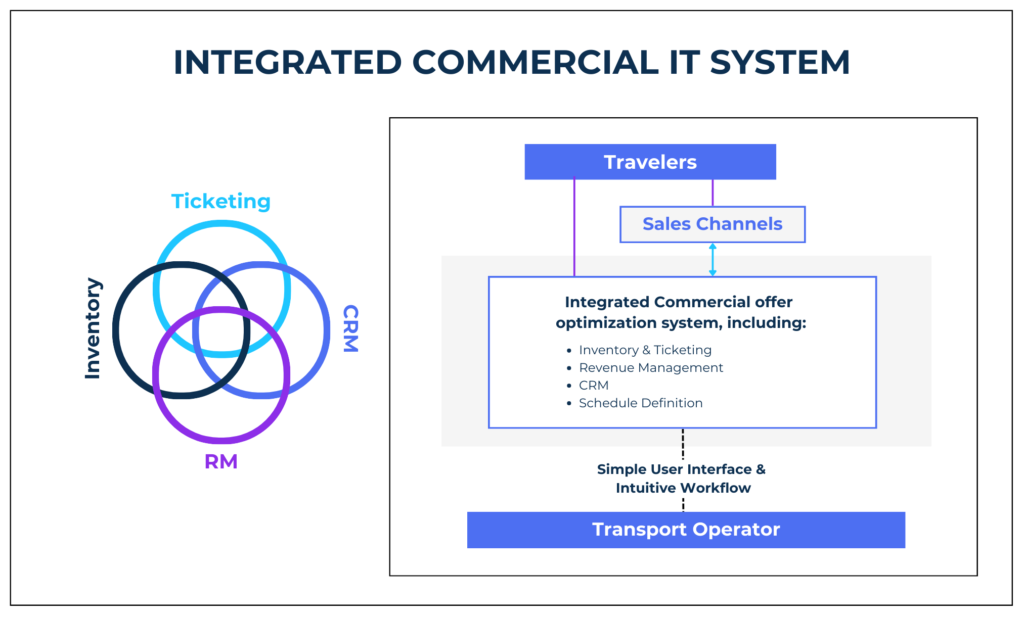
How Rail Operators Can Cut Costs Through Integrated Commercial IT Systems
Apart from making commercial operations simpler and easier to manage, integrated commercial IT systems like PAXONE can help rail operators reduce costs on many fronts, making their business sustainable. Here’s how:
- Reducing Maintenance Expenses: Separate systems are often managed by different operators, resulting in unnecessary IT expenses like licensing, maintenance, and staff training. An integrated commercial IT platform eliminates overlapping IT investment costs and reduces long-term maintenance expenses.
- Saving Interface and Integration Costs: Rail operators can save on the development, deployment, and maintenance of interfaces, as well as on troubleshooting and downtime caused by system mismatches. Fewer systems to maintain mean lower IT staff requirements and decreased reliance on external support.
- Optimizing Revenue Management: Integrated systems amplify the ability to leverage RM even more, with cross-system features such as post-booking optimization, continuous pricing, ancillary product optimization, and more. This provides opportunities to maximize revenue during peak demand or to fill seats during off-peak times. Increased revenue offsets IT investment costs while minimizing underutilized capacity.
- Saving on Scalability and Growth: Fragmented IT systems struggle to scale, with each new route, operator, or service requiring additional integrations, hence increasing complexity and cost. With an integrated system, operators save on expansion-related IT costs while ensuring future readiness.
Future of Rail: Innovative, Cost-Effective and Scalable Operations
Unification is the future of rail operations—offering cost efficiency, scalability, and the ability to meet and exceed passenger expectations. By consolidating commercial IT systems and adopting initiatives like OSDM, rail operators can reduce costs, improve operational efficiency, and position themselves for long-term success.
OSDM and How it Aligns with Integrated Rail Systems
The Open Sales and Distribution Model (OSDM) is an initiative from the rail industry to standardize and simplify ticket sales and rail distribution processes. OSDM replaces outdated models like PRIFIS and TAP TSI, focusing on a modern, open approach to data exchange and integration.
OSDM embodies the principles of unification by providing a framework for collaboration and integration. When paired with an integrated commercial IT platform like PAXONE, OSDM enables rail operators to:
- Streamline ticketing and distribution processes, reducing costs.
- Integrate multi-operator journeys seamlessly, offering a consistent passenger experience.
- Leverage centralized data for decision-making and dynamic pricing strategies.
OSDM is paving the way for improved integration in divided rail systems, showing how standardization and unification can work hand-in-hand to overcome fragmentation.
Stay tuned for our next blog post in this series on Divided vs. Unified Rail Systems, where we’ll walk you through multiple ways in which integrated systems can enable advanced revenue optimization.
Reach out to our product experts at [email protected] if you’d like a demo of our Integrated Commercial IT solution, PAXONE—powered by our industry-leading Revenue Management solution, CAYZN.
Try out our OSDM API first-hand through our exclusive sandbox environment here.
Wait a sec! Interested in a quick demo?
Witness how Wiremind's optimization solutions can supercharge your operations.
Book a demo





